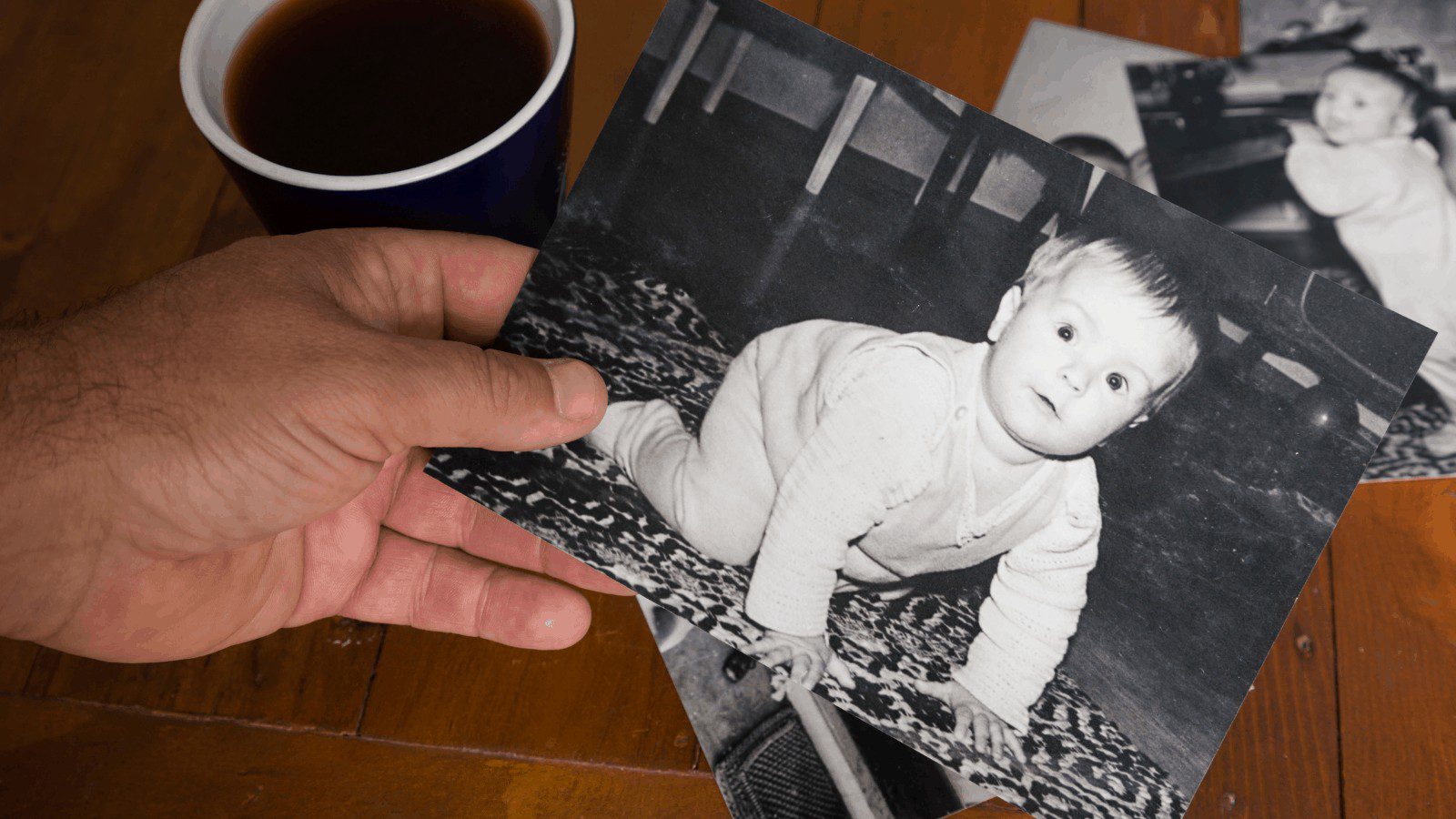Do you consider yourself a sentimental person? Perhaps a picture or a song evokes memories of the past that you love. You may often find your heart snuggled in the warm blankets of nostalgia.
Is being nostalgic beneficial, or can it harm your life? It’s a delicate balance that only you can decide. While being present in the moment is essential, your treasured recollections help mold you into the person you are.
What Is Nostalgia?
When people discuss being nostalgic today, it’s usually in a relaxed, positive way. However, that wasn’t always the case, explains a study published by History of Psychology. It was coined in 1688 by a Swiss physician named Johannes Hofer, as it’s a pseudo-Greek word meaning “longing for home.”
Today’s society would consider such sentiments as expected, if not expected. But the concept of mental health was still in the Dark Ages during Hofer’s time. When people in those days relived the past too much, doctors viewed it as an illness.
 Hofer attempted to describe a mental condition that the Germans called Heimweh, or homesickness, says the study. Do you know that feeling you had when you went to summer camp when you were homesick? Who would say in modern times that such sentiment was negative and a sickness?
Hofer attempted to describe a mental condition that the Germans called Heimweh, or homesickness, says the study. Do you know that feeling you had when you went to summer camp when you were homesick? Who would say in modern times that such sentiment was negative and a sickness?
According to an article published by the Association of Psychological Science, nostalgia was considered a psychiatric disorder up into the early 20th century. Past physicians identified its symptoms like anorexia, rapid heartbeat, and crying. These symptoms often presented in immigrants and students who were shipped to boarding school, states the article.
In an article published by the journal of History and Memory, Michael S. Roth presents medical cases where nostalgia was treated as a dreaded illness. They viewed nostalgia from a historical point when it was viewed as a disease of homesick soldiers.
In the past, physicians often believed it was pathological and prescribed bizarre treatments for it, per the article.
The Good News about Reminiscing
Fortunately, mental health and behavioral sciences have evolved, and experts have discarded sentimentality’s negative implications. Not only is recalling pleasantries from your past normal, but it can also be beneficial.
How do you feel when you recall some of your favorite memories? According to a study published by Cognition and Emotion, being nostalgic may build your optimism. The study found that when participants savored their past, it may create more nostalgic memories and greater optimism.
The Different Ways You Remember
If you often find yourself drifting into scenes from the past, you may have your senses to thank. Your brain uses your five senses to interpret each experience you have. Any similar experience can act as a recall button for your brain to remember those events.
First, you may often use pictures and the written word to evoke pleasant memories. Have you ever wondered why many people keep photo albums and images of loved ones and past events? These act as touchstones and can help you relive the memory.
Sound is also a powerful component of your memories. Have you ever heard the first notes of a song on the radio, and it immediately transports your mind to where you first heard it? Poems, stories, and oral history all play a part in your reminiscing.
For many people, particular scents bring back fond memories. Perhaps the smell of cinnamon makes you hungry for your late grandmother’s apple pies. Or do you ever smell a perfume or aftershave that smells like something a past loved one wore?
Taste and touch are also involved in recalling your past. Remember how refreshing your mother’s homemade lemonade was on a hot summer day? When you touch the keys on a piano, do you remember how nervous you were at your first piano recital?
How Being Nostalgic Can Make You More Optimistic
Often, you may use your senses to recall these beautiful times purposely. However, at any sudden, your feelings can bring automatic recall. In your mind, you are there and experiencing the sights, sounds, tastes, and feel of everything around you. Here are some ways that being nostalgic can be beneficial.
 1. It Can Remind You That Your Life Has Meaning
1. It Can Remind You That Your Life Has Meaning
If you’re like most people, you’ve often pondered the meaning of life. Have you ever wondered if your life served a purpose? Being nostalgic may shed some light on these central existential questions.
When you are lonely, remembering good times with family and friends remind you that you’re loved. Have you ever had brief moments of feeling that you’re useless and that nothing you do matters? Remembering your accomplishments reminds you that you are successful and worthy, even if you’ve made mistakes.
Recalling the lives of positive people in your past can also make you more optimistic. As you consider the things they did and their triumphs over tragedy, it encourages you. Your fond memories can make you realize that your life is worth living, and there are more memories to be made.
2. It Keeps You Connected with Others
Nostalgia can bring you closer to the people you love, especially when you are lonely. When you are away and feeling homesick, the memories of being with family and friends are comforting. They can bring great joy, optimism, and a sense of belonging.
Reminiscing can be even more beneficial when you are doing it with somebody else. When was the last time you called one of your siblings to chat and laugh about some of your shared childhood memories? Do you sometimes meet your best friend for lunch to catch up and recall some of your best times?
Before written language, humans passed on their history and traditions by a story. Children sat at their parents’ and elders’ feet and heard about how their people lived and survived. Then, they were instructed to retell these stories to their children while adding their own experiences.
Through nostalgic recollection, families wove a delicate rug of history, culture, and preservation. Each detail represented an enduring memory that connected them. Even with centuries of written history, families still carry on the tradition of sharing their past stories with younger generations.
Do you remember sitting with your grandparents and listening to their beautiful tales? Not only were they entertaining and informative, but their nostalgia connected them with you. Their memories became part of your memories and who you are today.
This connectedness not only provides enjoyment in your life and theirs, but it fulfills a basic human need. Not only do you need human companionship, but your soul craves to belong. Your memories are the threads that keep you connected to family, friends, and the world.
3. It Can Help with Life Changes
What are some of the milestones you cherish in your life? Among them are probably some of your firsts, such as the first day of school, getting your driver’s license, first kiss, the first day of college, etc. These happy memories often represented difficult life transitions.
Being nostalgic provides continuity between your past and present. For example, puberty is usually a stressful transition from being a child to a teenager. Although these years are often turbulent due to raging hormones and testing boundaries, memories from childhood helped.
4. It Can Make You More Optimistic About Your Goals
It’s hard to accomplish anything with an opposing viewpoint. Such a dark attitude can produce a self-fulfilling prophecy. However, remembering your past accomplishments can make you more optimistic about succeeding in the future.
Sometimes, your memories can help you set higher goals for yourself. Not all your memories are good ones. Nobody likes to ruminate about their past failures and shortcomings. However, you can even use negative experiences to learn not to repeat them in the present or future.
Dr. Maya Angelou once observed that before you know where you’re going, you need to know where you’ve been.
5. It May Help Decrease Symptoms of Depression
When you are feeling depressed, it’s not easy to be optimistic. However, a study published by the University of Kansas demonstrated a promising link between nostalgia and decreased symptoms of depression. The study found that the more nostalgic the participants were, the greater their depression symptoms were reduced.
As you stepped into the adult world of college, your first apartment, or your first real job, recalling times as a teenager can be a boost. Changes are difficult, even if they are inevitable and beneficial. When you are nervous about a new life transition, memories of your past can encourage you to take the next step.
You were courageous and did it back then, and you can do it now.
Even when you’re just feeling a little down, some of your favorite memories can perk you up. You might feel more optimistic about your day. Eventually, you may cue yourself with nostalgia to cope with negativity in a better way.
 Final Thoughts About Nostalgia to Boost Optimism
Final Thoughts About Nostalgia to Boost Optimism
Not all memories are good, and some can be a negative influence on you. However, these studies suggest the benefits of being nostalgic about fond memories. Not only can they help you be more optimistic, but they can encourage you to make beautiful memories every day.
















